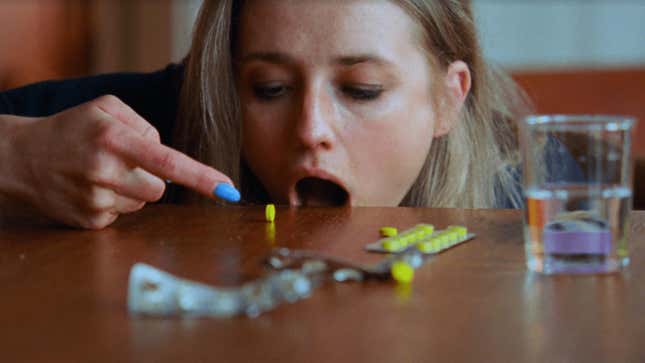In ‘Sick of Myself,’ a Young Woman Disfigures Herself to Get Attention
The biting Norwegian satire has been compared to The Worst Person in the World, in part because its antihero is perhaps the worst person in the world.
EntertainmentMovies

You’ve probably met someone like Signe, the antihero at the center of Sick of Myself. You can tell she’s lying because her mouth is moving. Every tale is a little bit taller coming from Signe. She is the kind of person who fakes a nut allergy at an intimate dinner party, putting out the staff and then putting herself in an awkward position when she eats some food containing nuts off her boyfriend’s plate. She manages to wriggle her way out of that one, naturally. Being a serial liar means living quickly on one’s feet.
Kristine Kujath Thorp’s portrayal of Signe is as exacting as it is unsympathetic in Norwegian writer/director Kristoffer Borgli’s film (in theaters now). She is not miserable, but there’s an off-putting air around her. The parts don’t cohere to an appealing whole. Her boyfriend Thomas (Eirik Sæther) is an artist who’s found some success repurposing furniture he makes no secret about having stolen. Meanwhile, she’s a barista whose biggest professional moment arrives when she helps a woman who bursts into the cafe with puncture wounds on her neck after a dog attack. (Naturally, as Signe brags about this later, we watch the story distort in one of several effective fantasy sequences.) Signe wants more for herself, but she isn’t particularly motivated. She doesn’t care if the world is a better place, just as long as her world is a better place. Attention, in all of its abstraction and with no regard for its ultimate implications, remains her goal.
-

-

-

-

-

-

-

-

-

-

-

-

-

-

-

-

-

-

-

-

-

-

-

-

-

-

-

-

-

-

-

-

-

-

-

-

-

-

-

-








































